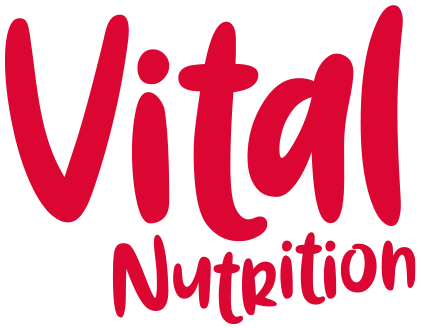How to eat your way to a good night's sleep
A good night’s sleep can leave us feeling refreshed, revived and ready to start the day with a spring in our step. Unfortunately – in an age when technology is everywhere, being ‘busy’ is only ever seen as a good thing and stimulants keep us going – our sleep is suffering and insomnia is rife. Our internal body clock, also known as the circadian rhythm, has lost its natural rhythm.
With the recommended eight hours a night, sleep plays a significant role in healing and repairing our body. Insomnia and erratic sleep patterns have been associated with everything from obesity and cardiovascular disease, to depression and diabetes.
The good news is that nutrition has an important role to play in resetting the sleep-wake cycle, so read on to find out how you can eat your way to a better night’s sleep.
Circadian rhythm
Your body has a 24-hour cycle (also known as your circadian rhythm) that helps to regulate when you wake up, your digestion, hormones and many other functions of your body. This inbuilt clock is pre-programmed to respond to you being active during the day and asleep at night.
When it comes to circadian balance and melatonin and cortisol regulation, our exposure to daylight is the major influencer. Getting outside in the morning can help us feel more energised, and making sure we are not overly exposed to light at night (screens, phones and devices) can help us get a more restful sleep as melatonin is more balanced.
The sugar connection
The more sugar that we eat during the day, the more likely we are to wake in the middle of the night. Even if we don’t realise we are waking, the sugar in our system can pull us out of a deep sleep, leaving us feeling exhausted the next day.
Blood-sugar imbalance and mild hypoglycaemia can trigger our adrenals to release adrenalin to compensate for low blood sugar. Having adrenalin coursing through our body at 3am or 4am is sure to wake us up.
So if you tend to get over to sleep OK but find yourself waking a few times during the night, try cutting back on sugar and refined carbohydrates, and having some protein with every meal. This will help to balance your blood-sugar levels – and you could end up with the additional benefit of a good night’s sleep too.
Studies show that artificial sweeteners promote hyperactivity, insomnia and reduce sleep quality, so be careful that you are not replacing one sleep disrupter with another. Check for ingredients like sucralose, aspartame, saccharin, acesulfame K and sorbitol.
The caffeine link
We know that caffeine is a stimulant and although most people can tolerate a certain level, it can impact sleep quality and quantity. Caffeine affects the nervous system, triggering neurotransmitters to make us feel more alert and suppressing the sleep hormone, melatonin.
Caffeine begins to affect your body very quickly, with its stimulant effects typically being felt after 25-45 minutes and effects lasting for several hours.
It can take from six to eight hours for the stimulant effects of caffeine to be reduced by one half. For a good night’s sleep, avoid caffeine in the late afternoon and evening.
Try herbal teas instead – look out for ingredients like lemon balm and valerian as this combination of herbs has been shown to be particularly effective for sleep and relaxation.
Sleepy foods
Eggs, fish and walnuts, tomatoes, cherries, mushrooms and cereals are some foods that naturally contain melatonin.
The amino acid tryptophan, found in foods like oats, bananas, milk, pulses and almonds, is required for melatonin production. Increasing sources of these foods in your diet has the potential to support sleep.
Magnesium is sometimes known as nature’s tranquiliser yet most people in the UK are deficient in it. Magnesium is found in dark green, leafy vegetables, nuts and seeds.
Epsom salt baths are also a great way of topping up your magnesium levels and can help you relax and unwind at bedtime. Add a few drops of an essential oil – like lavender or camomile – to your bath, then cocoon yourself in a duvet and prepare to sleep like a baby.
This blog post first appeared as my column in The Irish News on Saturday 8 August 2020.

